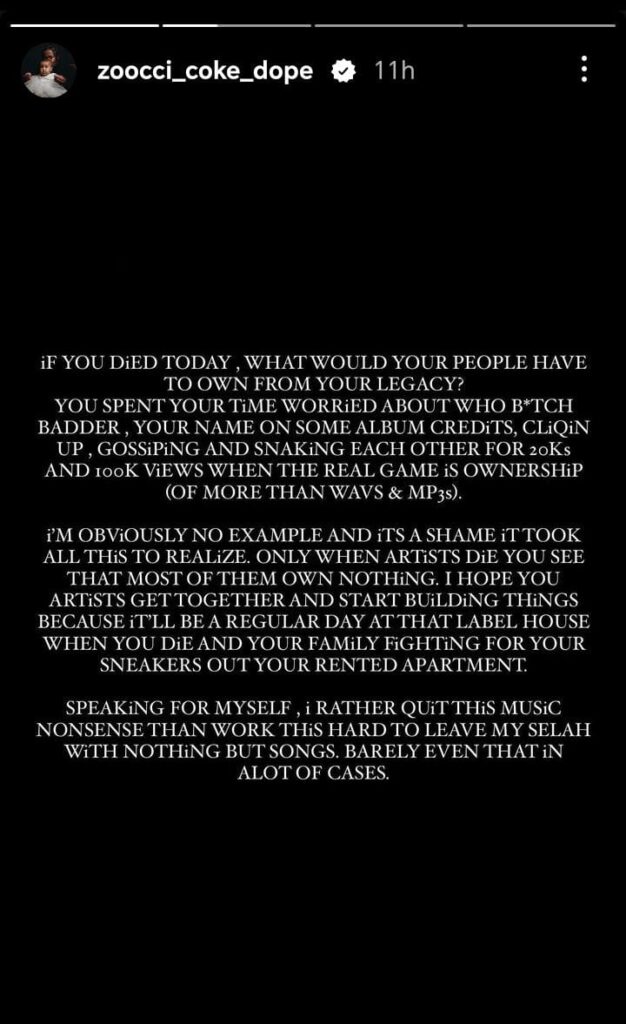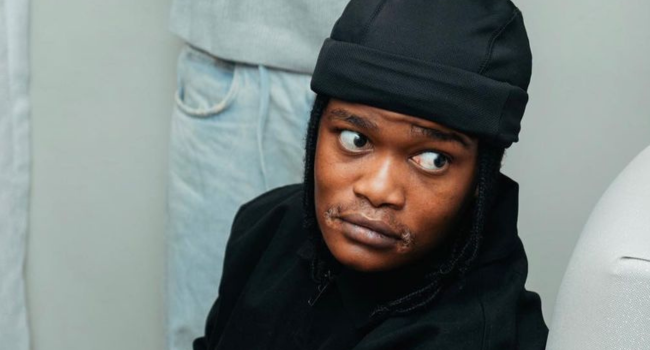Zoocci Coke Dope Alarms On Artists’ Music Ownership & Financial Security. Amidst a world where the spotlight frequently eclipses the shadows, Zoocci Coke Dope stands out as a beacon of clarity and courage. Having navigated a career marked by both highs and lows, this influential rapper and producer is now leveraging his platform to address a critical issue in the music industry: artists’ music ownership and financial security.
Taking to social media, the famed producer took a stand to address the precarious financial landscape that many artists find themselves navigating. With a blend of unflinching honesty, Zoocci Coke criticized artists and the music industry’s preoccupation with superficial pursuits—such as the quest for social media validation, seeking fame, and engaging in petty rivalries—at the expense of building substantial, lasting legacies.
The award-winning producer also reflected on the disheartening trend where, upon their death, many musicians leave behind little more than a collection of songs and possibly a few material items, with their families often left to struggle.
He added that t without real ownership—be it of music rights, properties, or other assets—artists risk leaving their loved ones with nothing of lasting value.
“If you died today, what would your people have to own from your legacy? You spent your time worried about who b*tch badder, your name on some album credits, Cliqin up, gossiping and snaking each other for 20ks and 100Ks views when the real game is ownership.
“I’m obviously not an example and its a shame it took all this to realise only when artists die you see that most of them own nothing. I hope you artists get together and start building things because it will be a regular day at that label house when you die and your family fighting for your sneakers out of your rented apartment,” wrote Zoocci Coke Dope.

In a call to action, the artist urged fellow musicians to prioritize building tangible legacies and creating lasting structures that can benefit their families and communities long after they’re gone. “Speaking for myself, i rather quit this music nonsense than work this hard to leave Selah with nothing but songs. Barely even that in a lot of cases.”

